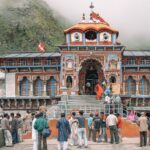Laos, a landlocked country in Southeast Asia, offers a unique travel experience with its stunning landscapes, rich culture, and historical sites. However, it’s essential to be well-informed about the safety and entry requirements before planning your trip. This guide provides comprehensive information to help you make informed decisions and ensure a safe and enjoyable journey.
Safety and Security in Laos
Laos generally requires travelers to exercise a high degree of caution due to security concerns.
Areas to Avoid or Exercise Caution
-
Xaisomboun Province: It is advised to avoid all travel to Xaisomboun Province due to the tense security situation and random shooting incidents since 2015. If travel is unavoidable, exercise extreme caution, avoid travel after dark, and follow the advice of local authorities.
-
Bokeo Province: Avoid non-essential travel to Bokeo Province along the borders with Myanmar, Thailand, and around the Golden Triangle Special Economic Zone. This area is known for criminal activity, including drug and human trafficking, as well as employment scams. If you must travel there, exercise extreme caution and follow local authorities’ instructions.
Crime and Scams
-
Street Crime: Petty crime, including bag theft, is common in cities and towns like Vientiane, Luang Prabang, and Vang Vieng. Thieves often use motorcycles to snatch bags and valuables.
-
Hotel Break-ins: Break-ins at hotels and guesthouses can occur. Armed robberies are occasional.
-
Money Counting Scams: Be cautious of currency exchange scams. Use banks or ATMs instead of exchange kiosks.
-
Spiked Food and Drinks: Never leave your food or drinks unattended. Be wary of accepting items from strangers, as they may contain drugs. “Happy pizzas” and “special shakes” may contain unspecified amounts of opium and other unknown substances, particularly in Vang Vieng.
Women’s Safety
Sexual assaults occur, particularly in tourist areas. Be vigilant, especially along hiking trails.
Adventure Tourism
Engage in adventure sports only with reputable companies that have insurance. Ensure that recreational activities are covered by your travel insurance. Exercise extreme caution during river-based activities due to fluctuating river levels and debris.
Public Transportation
Public transportation is unreliable, especially after dark. River travel is common, but safety standards are minimal. Avoid traveling on or across the Mekong River after dark.
Landmines
Landmines and unexploded ordnance pose a risk, particularly in the Plain of Jars and border areas with Vietnam. Stay on well-used roads and paths, and follow local authorities’ advice.
Entry and Exit Requirements for Laos
Entry requirements can change, so verify the latest information with the Laotian authorities or the nearest embassy or consulate.
Passport
Your passport must be valid for at least 6 months beyond your intended departure date from Laos.
Visas
-
Tourist Visa: Required. Electronic tourist visas can be obtained in advance for entry through Wattay International Airport or the Lao-Thai Friendship Bridge I. Visas on arrival are available at some international airports and border crossings.
-
Business Visa: Required.
-
Student Visa: Required.
A passport photo and approximately US$42 are required for visas on arrival.
Other Requirements
-
Entry Stamp: Ensure you obtain an entry stamp into Laos to avoid fines, detention, and deportation.
-
Travel to Xaisomboun: Obtain permission from local authorities before traveling to certain parts of Xaisomboun Province.
Health Information for Travelers to Laos
Consult a healthcare provider or travel health clinic 6 weeks before your trip.
Vaccinations
-
Routine Vaccines: Ensure routine vaccinations are up-to-date, including MMR, diphtheria, tetanus, pertussis, polio, varicella, meningococcal disease, and seasonal flu.
-
Recommended Vaccines:
- Hepatitis A: Vaccination is recommended.
- Typhoid: Recommended, especially for travelers to rural areas.
- Japanese Encephalitis: Consider vaccination if traveling long term, staying in rural areas, or visiting during an outbreak.
- Hepatitis B: Vaccination is recommended for all travelers.
- COVID-19: Complete a COVID-19 vaccine series.
- Malaria: Antimalarial medication may be recommended depending on your itinerary and time of year. Protect yourself from mosquito bites at all times.
Health Risks
-
Malaria: There is a risk of malaria in certain areas and/or during a certain time of year.
-
Dengue: Dengue fever is a risk, with mosquitoes typically biting during the daytime.
-
Zika Virus: Zika virus is a risk and can cause serious birth defects.
-
Rabies: Rabies is carried by dogs and wildlife. Seek medical attention immediately if bitten or scratched.
-
Travelers’ Diarrhea: Practice safe food and water precautions.
-
Schistosomiasis: Avoid contact with untreated freshwater.
Food and Water Safety
- Eat only safely prepared food.
- Drink boiled or bottled water.
- Avoid ice in drinks.
Medical Facilities
Medical facilities in Laos are limited and may not meet international standards. Medical evacuation to Thailand may be necessary for serious conditions. Ensure your travel insurance covers medical evacuation and hospital stays.
Laws and Culture in Laos
Legal Matters
- Identification: Carry suitable identification, such as a passport, and comply with requests to stop at checkpoints.
- Drugs: Penalties for drug offenses are severe, including the death penalty.
- Illegal Activities: Non-marital sexual relationships between foreigners and Laotian citizens are against the law. Photography of government buildings and military installations is prohibited.
Cultural Considerations
- Public displays of affection are not considered proper.
- Dress modestly when visiting temples and religious sites.
Natural Disasters and Climate
Typhoons and Monsoons
The rainy season extends from May to November, with provinces along the Mekong River prone to severe rainstorms, flooding, and landslides. Stay informed of weather forecasts and follow local authorities’ instructions.
Climate Change
Extreme weather events are becoming more frequent and may affect your travel plans.
Staying Informed
- Monitor local media for updates and advisories.
- Follow instructions from local authorities.
- Register with your embassy or consulate to receive important updates.
By being informed and prepared, you can significantly enhance your safety and enjoyment while traveling in Laos.
